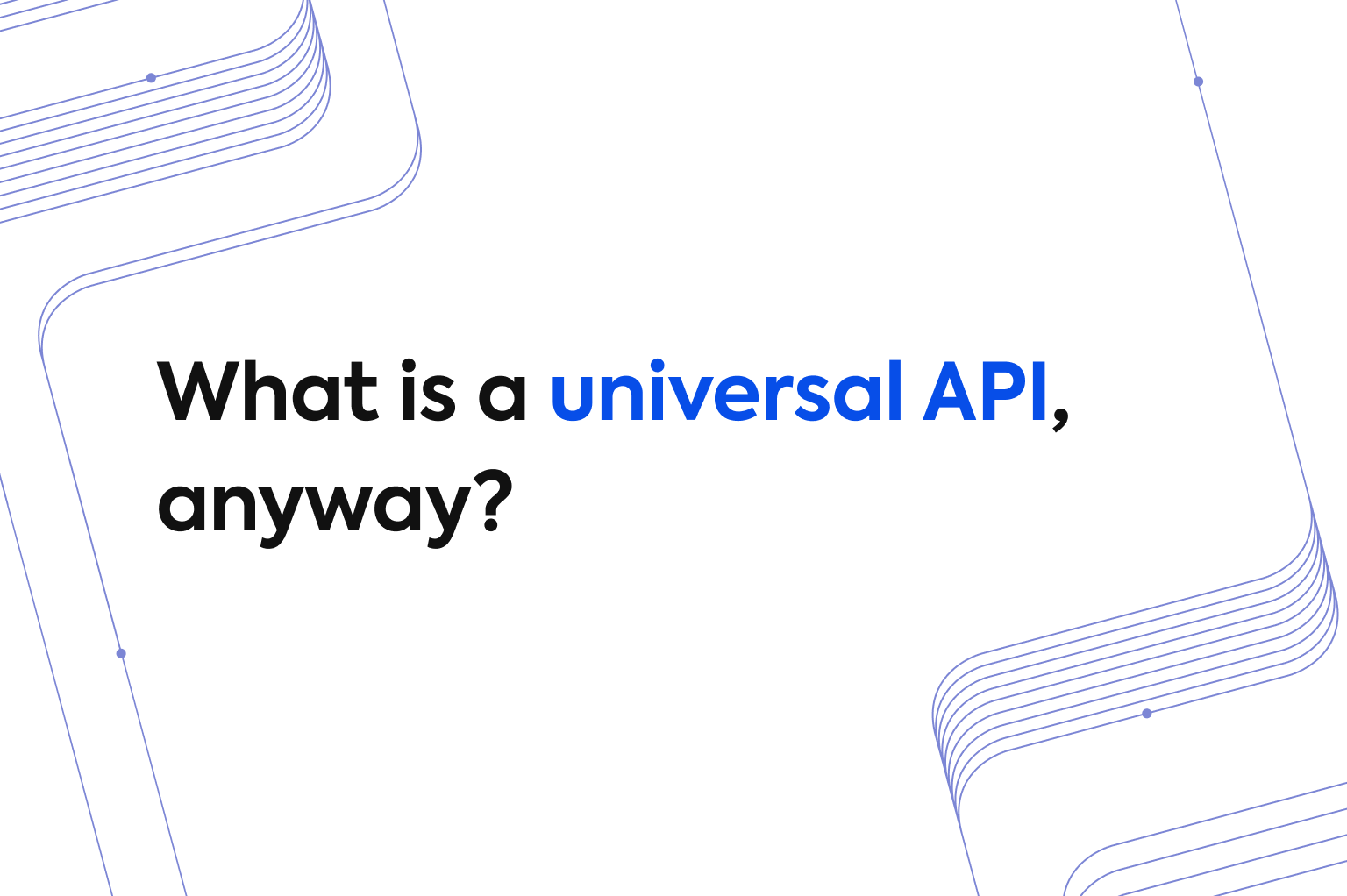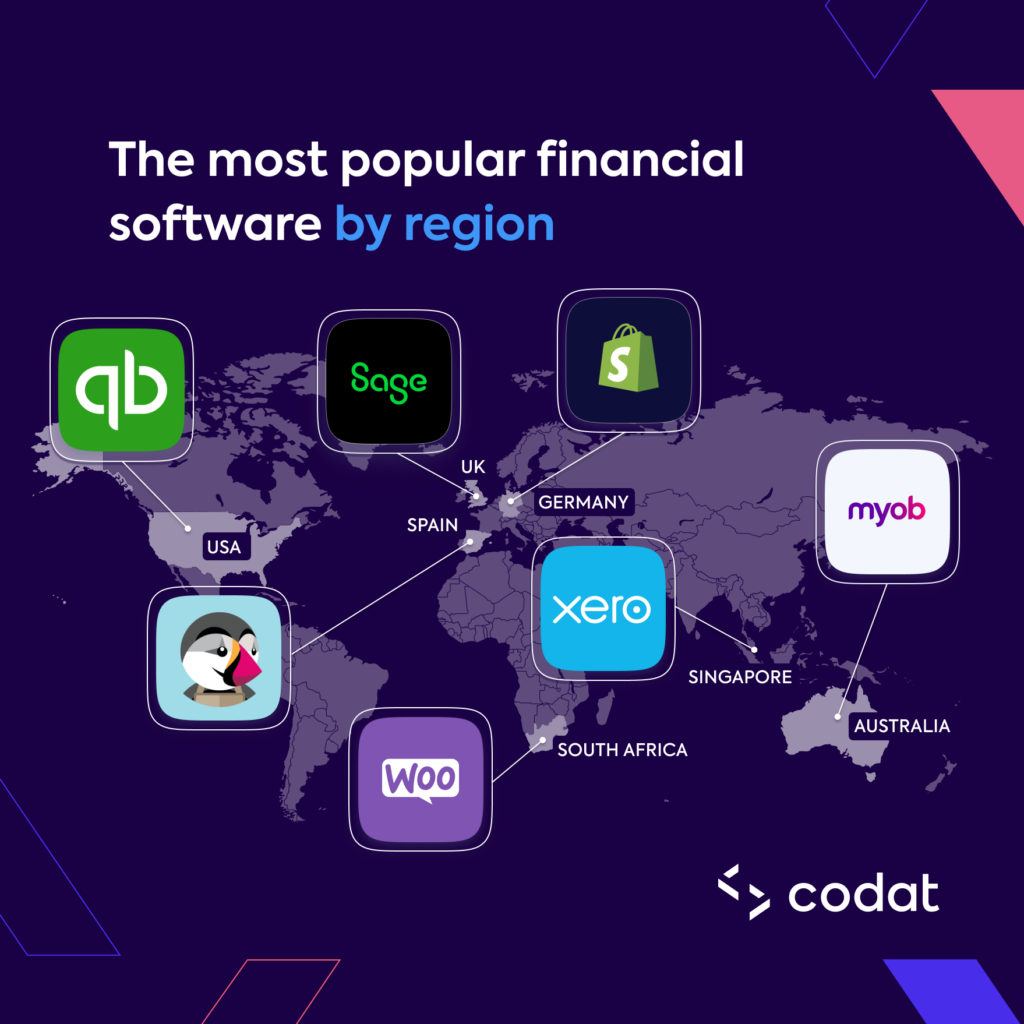
Learn the difference between a universal, unified, and financial data API and how to find the right solution for your business needs.
At the most basic level, a universal API is exactly what it sounds like: a single piece of infrastructure that’s capable of connecting to many different data sources at once and—unlike other options—structuring their output into a standardized format. They are used by likes of banks, lenders, payment processors, and other service providers to maximize development resources, win new business, and improve operational efficiency.
Software providers can build once to a universal API and instantly stream normalized data from multiple systems, rather than having to build integrations to each of those systems in-house.
A well-known example is Plaid, the API that enables fintechs like Chime and Venmo to connect their apps to customers’ bank accounts and access critical banking data.
In this post, we break down why universal APIs have become a go-to solution for financial service providers—and how you can assess whether an API that claims to be universal is really what you need.
The case for universal APIs
You use APIs to sync data from external systems to your product. But unless the data you require is housed in one global system and can be sourced from a single provider, you’re going to need multiple integrations to cover your customer base.
This is a particularly urgent problem for financial service providers, since the software market in areas like accounting, eCommerce, and payments is heavily fragmented.

That means, that without a universal API, a lot of your team’s time and resources will be diverted to building and maintaining a number of isolated, inconsistent integrations. And, of course, the more your business grows, the more integrations you’ll need.
With a universal API, the work of building, scaling, and maintaining integrations is handled by an expert third-party platform. That means you get all of the benefits of connectivity without any of the burden.
Some of these benefits include:
⬆️ Greater efficiency as you eliminate the need for incremental builds and endless upkeep, freeing your developers to work on core competencies and exciting new features
🏎️ Accelerated product roadmaps with a reduced time and cost to build
🔓 Better UX with broad coverage of the systems your customers use and faster, user-friendly solutions that automate their critical processes and reduce the likelihood of churn
🏆 Higher data quality with irregular data attributes and complex accounting categories packaged in a common, easy-to-understand format
💸 New revenue streams unlocked by tapping into new data sources, expanding into adjacent markets, and building stickier customer relationships
🤝 New distribution channels opened through partnership opportunities with more data sources and software providers
🧙♂️ Expert guidance from a specialized team that keeps up with emerging integration trends and edge cases (so you don’t have to)
Codat’s approach
Although standardizing data from multiple sources is a core component of all of Codat’s products, rather than providing a single universal API designed to work for any use case, we have built a range of specialized business data APIs tailored to solve specific problems for our clients.
Why? Because the challenges to build the next generation of connected fintech products differ greatly depending on whether you’re building a solution for lending, automating payments processed or streamlining bookkeeping.
For instance, banks and lenders making credit decisions must make sense of SMBs’ varying charts of accounts (when are “flowers” an operating expense, and when are they a cost of sales?), while card issuers reconciling merchants’ spend must deal with complicated refunds, chargebacks, and custom expense categories. These providers don’t necessarily need more integrations, endpoints, and standardizations—they need the right ones delivered in a useful way. They need features like machine learning-led account categorizations and built-in logic that automatically creates new account lines for stray products in an SMB’s accounting system.
Business data APIs for lending and accounting automation
That’s why, rather than simply making data accessible, Codat helps providers solve for the reasons why they wanted to access that data in the first place.
We’re not just playing a numbers game when it comes to coverage; we’re focused on building functionality that’s tailor-made to the specific workflows of banks, lenders, PoS systems, expense management platforms, accounts payable software, and payroll providers.
Or, to put it more simply, our API takes all of the benefits of universality—efficiency, data quality, frictionless user experiences—and makes them work for your specific needs.
Learn more
If you’re looking for more information on universal APIs—or want to learn more about Codat’s approach to connectivity— reach out to our team. You can also register for a free account to try our solutions out for yourself.